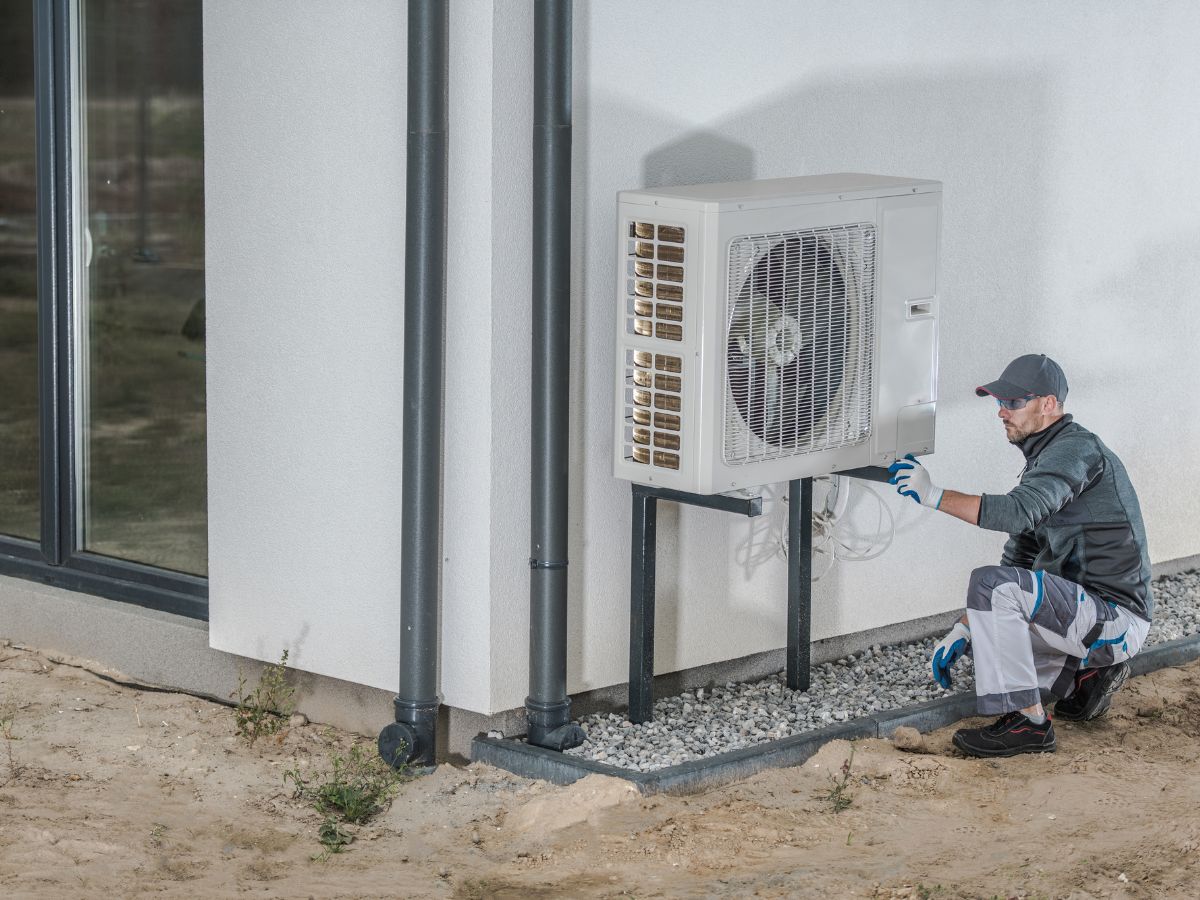As homeowners, you’re constantly searching for energy-efficient solutions that help minimize your carbon footprint and utility bills. One such innovative solution is the geothermal heat pump, an eco-friendly option that provides efficient heating and cooling for your home year-round.
In this guide, we’ll walk you through everything you need to know about how to install a geothermal heat pump, from understanding how it works to determining if it’s the right type of system for your home.
What Is a Geothermal Heat Pump?
A geothermal heat pump is a cutting-edge HVAC system that uses the Earth’s natural heat to regulate your home’s temperature. Unlike other types of heating systems that burn fuel to create warmth, a geothermal heat pump transfers heat from the ground into your living space for heating and vice versa for cooling.
Operating on the principle of heat exchange, the system uses underground pipes (known as a ground loop system) filled with a heat transfer fluid (usually water or antifreeze). This fluid absorbs or releases heat from the ground, allowing the pump to regulate indoor temperatures efficiently.
Because the ground temperature remains steady around 50°F year-round, the system uses less energy than those relying on fluctuating air temperatures.
Types of Geothermal Heat Pump Systems
The geothermal heat pump uses a ground loop to transfer heat between your home and the Earth. There are a wide range of geothermal loop systems, and the right one for your home depends on factors like your land space and soil conditions.
- Horizontal Loop System
Ideal for homes with ample yard space, this system involves laying coils or straight runs of polyethylene pipes in trenches at least six feet deep. It is often the most affordable option but requires a large amount of land.
- Vertical Loop System
When space is limited, a vertical system is used. It requires drilling deep, narrow holes and placing pipes vertically underground. This option works well for smaller lots but may cost more due to the drilling involved.
- Pond/Lake System
If your property has a nearby pond or lake, you may opt for a water source system, where coils are placed underwater to draw heat from the water rather than the soil. Alternatively, systems can be designed to use groundwater, tapping into aquifers to transfer heat.
The Geothermal Heat Pump Installation Process
Installing a geothermal heat pump unit involves several key steps, each ensuring the HVAC system’s energy efficiency and long-term performance.
- Site Evaluation: A professional will evaluate your property to determine the best type of geothermal system based on numerous factors such as land size, soil type, and climate. Soil testing ensures that the heat transfer process will be efficient.
- Loop Installation: Depending on the chosen system, the installation team will either dig horizontal trenches or drill vertical holes to install the underground loops.
- System Installation: Once the loops are installed, the geothermal heat pump unit is connected, and the heat transfer fluid is circulated through the system.
- Testing and Commissioning: After installation, the system is tested to ensure it works efficiently, and any adjustments are made to ensure optimal performance.
Why Choose Geothermal Heat Pump Installation?
Installing a geothermal heat pump unit is a long-term investment that offers substantial savings on energy costs while helping reduce your carbon footprint. Here are some key benefits:
- Lower Energy Costs: Geothermal systems can save you 30-60% on heating and 20-50% on cooling costs when compared to conventional HVAC systems. These cost savings add up quickly, making the initial investment worth it in the long run.
- Environmentally Friendly: Since geothermal systems use renewable energy from the Earth, they significantly reduce greenhouse gas emissions, making them a more eco-friendly option than gas—or oil-powered heating systems.
- Reliability and Comfort: Geothermal systems provide a consistent and comfortable temperature year-round, ensuring your home stays cozy in winter and cool in summer without relying on fossil fuels.
- Low Maintenance: These systems are durable and typically require less maintenance than traditional HVAC systems. The indoor components last around 25 years, while the ground loops can last over 50 years.
For homes without ductwork, other heating options can also offer energy-efficient solutions. Anderson Air can help you find the best system tailored to your needs.
Is Geothermal Heat Pump Installation Right for Your Home?
While geothermal heat pumps offer numerous benefits, they aren’t suitable for every home. Here are a few things to consider:
- Property Size: Do you have enough land for a horizontal loop system, or would a vertical system be necessary?
- Budget: Can you manage the upfront cost, and do you plan to stay in your home long enough (4-7 years for new construction, 10-12 years for retrofits) to recoup the investment through energy savings?
- Energy Needs: Does your home use inefficient heating systems like propane or oil? If so, geothermal heating could offer significant savings.
Why Choose Geothermal Heating and Cooling?
Installing a geothermal heat pump is a long-term investment that can offer substantial savings on energy costs while helping reduce your home’s carbon footprint. If you’re ready to switch to a more sustainable and cost-effective heating and cooling system, Anderson Air is here to help.
With over 50 years of experience, Anderson Air is the go-to expert for efficient and professional geothermal heat pump installation. We can guide you through the entire process, from site assessment to professional installation.
Contact us today to schedule a consultation and learn more about how a geothermal heat pump can benefit your home.

